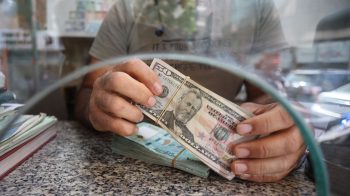World leaders fail to reach accord on Europe
It’s two years to the day since we first heard about Greece’s debt problem. Back then, few people were bold enough to predict significant fallout from the revelation that Greece had for years relied on shady math to paper over the holes in its balance sheet. No one would have guessed that the resulting train wreck would force the leading countries of the world — the G20 — to meet over their precious weekend to hash out a solution to Europe’s sovereign debt crisis.
At first, the news from the summit was good. A communique announced the EU would work toward a “comprehensive” solution to the crisis. The plan would be announced at a big EU meeting this coming weekend in Brussels.
But lost immediately, delegates began backing away from that statement. A spokesman for Chancellor Angela Merkel said a package of measures would be agreed upon in Brussels this Sunday, but warned, “The chancellor reminds [the world] that the dreams that are emerging again, that on Monday everything will be resolved and everything will be over, will again not be fulfilled.” In other words, anyone expecting Germany to open wide its big wallet to bail out Greece would be sorely disappointed.
Today we talked to Zach Elfman, an investment strategist at Noster Capital in London. He says that, yes, Europe’s politicians do seem to realize that something big needs to happen. But he says that he doesn’t see a solution in the near future. He expects Europe’s problems to remain unresolved, meaning continued volatility in the world stock markets, which today were down over the lack of German enthusiasm.
Elfman says Germany is reluctant to be Europe’s white knight because the German people won’t support a government that takes on that role. Elfman points out that, at a time of growing global protest against banks, it’s becoming much harder for governments to use taxpayer money to fund financial institutions. And it’s obvious to anyone who’s even paying passing attention to the crisis that a bail out of Greece amounts to a back door bailout of Europe’s banks.
Elfman also says that the European situation could be a harbinger of things to come in other countries such as Japan and the U.S., which also face huge debts and intractable political problems. Of course, right now it seems hard to imagine the U.S. falling into the sort of crisis that Europe is facing. But he remarks, it wasn’t that long ago that European debt looked like a risk-free proposition.
Plus, the Occupy Wall Street protests celebrate their one-month anniversary today. The fact that Americans are giving big money to support change in our financial system is making the Marketplace Daily Pulse feel stronger today.
There’s a lot happening in the world. Through it all, Marketplace is here for you.
You rely on Marketplace to break down the world’s events and tell you how it affects you in a fact-based, approachable way. We rely on your financial support to keep making that possible.
Your donation today powers the independent journalism that you rely on. For just $5/month, you can help sustain Marketplace so we can keep reporting on the things that matter to you.


















